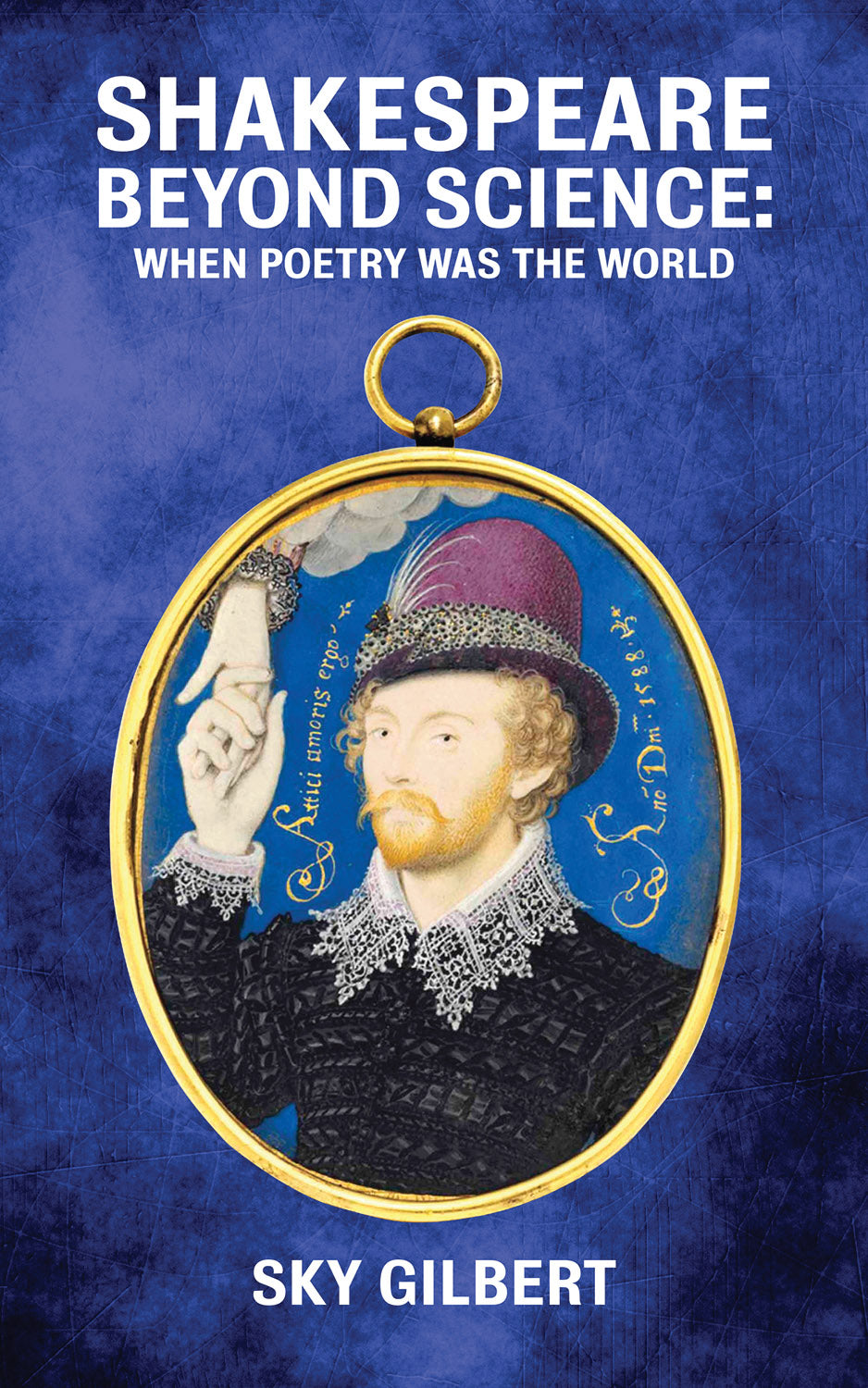Shakespeare Beyond Science
Shakespeare Beyond Science
When Poetry Was The World
By Sky Gilbert
Shakespeare wrote at a unique historical turning point: the world was understood through poetry -- rather than through the science of observing it. In Shakespeare Beyond Science: When Poetry Was the World, Sky Gilbert's radical new research locates Shakespeare as a disciple of the Greek rhetorician Hermogenes, and a student of the Neo-Platonist Johannes Sturm. No, not just another ‘interpretation' of the meaning of Shakespeare's work. Instead, a radical approach to Shakespeare as magician and rhetorician, as a post-structuralist, more concerned with form than content, and confident of the dangerous magical power of words not only to persuade but to construct our consciousness.
Details
Details
Guernica Editions (Essential Essays Series)
9781771835039
200 pages |
Couldn't load pickup availability
Reviews
Reviews
The truth is, Sky Gilbert has more theatrical flair in his little finger than anybody else in the Toronto scene....It is a measure of Sky Gilbert's theatrical genius
Gilbert has spoken eloquently about society's persecution and misunderstanding of non-conformity- and that's a theme that goes beyond the specifics of homosexuality.
It is the best book I’ve read this year, one of the most interesting books I’ve ever encountered.
Gilbert has a real gift for explaining complicated intellectual ideas with conviction and clarity, and for keeping his prose cheerful – however deep he burrows. Frances Yates had that too.
Alexander Waugh, author of The House of Wittgenstein
Gilbert brings clarity and a keen sense of relevance to reconstructing the theoretical influences that contributed to the development of Shakespearean style and consciousness.
Shakespeare's Bible
Gilbert’s ideas – richly expanded, developed, and generously footnoted – are part of a growing ‘Shakesqearean’ discourse – one that does not, one hopes, shake the spear so much as embrace the intersectionalities and multiplicities of queer identity with radical love, support, and above all, imagination.
Waywes
I'm utterly dazzled by its originality and scholarship. Just don't let yourself be put off by Gilbert's authorship heresy. Taking that in stride is a small price to pay for allowing Gilbert to open your eyes to profound new depths in the works of Shakespeare, and in the role of art in our lives. Gilbert knows that we suffer from the covert cult of "scientism"--that is, science implicitly turned into religion. It pervades our current conception of the world, to our detriment. Poetry and literature, as Gilbert demonstrates, have the potential to change our lives, by helping us understand ourselves. Harold Bloom famously accused Freud of plagiarizing Shakespeare in inventing psychoanalysis. I have practiced psychoanalysis for 45 years, and I am happy to concede Shakespeare's phenomenal understanding of his own mind, and of ours. Seldom have I read a book that is so original, while also being deeply learned. I confess I knew nothing about Hermogenes before reading this book. Although I'm familiar with many of the other thinkers Gilbert writes about, he wove their ideas together with those of Shakespeare in a breathtakingly fresh way.
Dr. Richard M. Waugaman
I thought I'd read it all on Oxford and Shakespeare. Then I heard Dr. Gilbert talking about this book on the "Don't Quill the Messenger" podcast (#34) and was impressed with his fresh and insightful take on Shakespeare. (He was also more knowledgeable than the host, which almost never happens.) Anyway, his argument in this book is fascinating and, to me, quite convincing. I'm about halfway through the book, and it's fundamentally changing my understanding of Shakespeare and what he was trying to do. Strongly recommend to anyone who loves Shakespeare and is open to new ideas! The author writes pretty well for an academic, although the flow of his argument can be confusing. He will introduce an interesting question and then apparently go off in a completely unrelated direction. Only a few paragraphs later does it become clear how he was following up on the initial question. So the author would have benefited from working with an editor to catch typos and add segues to improve clarity. However it's readable enough if you keep going, and the innovative content makes it worth persisting.
Slippers Review
It is the best book I’ve read this year, one of the most interesting books I’ve ever encountered.
Leslie Barcza
Congratulations – your breakthrough is well-deserved and I think your book may be poised to be a real breakthrough for Oxfordians, because you have so well discussed such an important topic as the influence of Hermogenes on Shakespeare.
Roger Stritmatter, Professor of Humanities at Coppin State University
Awards
Awards


